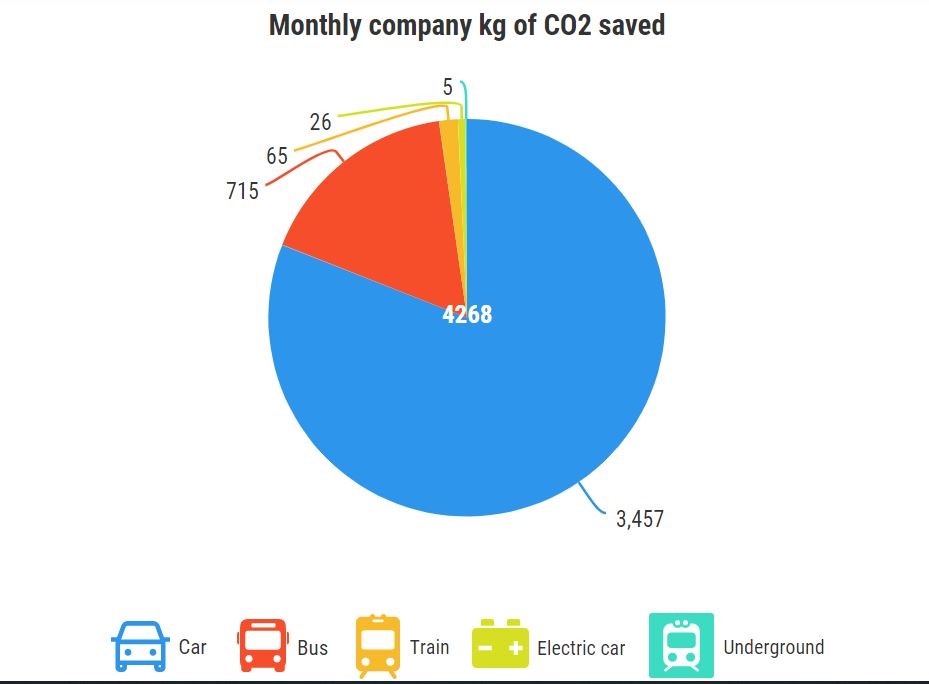Covid-19 has affected all of humanity in unprecedented ways. The global pandemic has driven a global economic crisis that has resulted in mass unemployment and a looming global food shortage, with devastating famines expected in Africa.
The virus has hit the most vulnerable the hardest. Refugees, the homeless and those living in slums cannot self-isolate while the elderly and other high-risk groups may have to shield themselves for many months to come. Many health systems are at breaking point and over 238,000 people (as of 3rd May 2020) have lost their lives.[1]
A silver lining in all this chaos has been humanity’s reduced environmental impact. The reduction in air pollution has been witnessed from space[2]. Residents in Venice have observed crystal clear water with less sediment being churned up by boats. In the UK, road traffic has fallen by more than 60%[3]. Following the UK government’s announcement of the lockdown on 23rd March 2020, many companies including RPA made the transition to homeworking.
We have estimated the carbon emissions we have saved as a company during the last month by working from home. Even as a small company, of approximately 30 staff, we collectively travel 16,580 miles to and from work in an average month! More than three quarters of our employees drive to work by car (mainly because our head office is currently situated in a small village in Norfolk with limited access to public transport). As shown in the pie-chart below, our team has collectively saved an estimated 4,268 kg of CO2 by working from home over the last month.
For modelling purposes, the UK Government currently uses a short-term traded value of CO2 of £13.84 per tonne (with a range of £0-£27.69 per tonne), although it has been argued that a price consistent with achieving the Government’s commitment to net-zero emissions by 2050 would start at £50 per tonne of CO2 (with a range of £40–100).[4]
On this basis, we have calculated the total value of our carbon savings as follows:
- £59.07 based on the UK Government’s current short-term trade value for carbon of £13.84 per tonne (range of £0 to £118.14)
- £213.40 (with a range of £170.72 to £426.80), based on the recommended price of carbon to achieve net-zero emissions by 2050
In order to limit the global temperature increase to 1.5°C – the most ambitious goal of the 2015 Paris Agreement – the latest evidence from the Intergovernmental Panel on Climate Change shows that global emissions will have to fall by 7.6% year on year for the next decade and to net-zero by 2050.[5]
As countries begin to get back to normal, and companies like RPA look to start working from an office again, it will be important to consider alternatives to car transport. Continued working from home, maximising use of virtual meetings to reduce travel and greater use of active travel (walking, cycling) should be promoted. In this regard, as RPA looks to move its office to Norwich, we will be supporting more walking and cycling, discouraging use of cars to drive into the city centre.
Covid-19 has given us a glimpse of a fossil fuel free world and we all need to play our part and make permanent changes to ensure this becomes our reality.

[1] World Health Organisation, ‘Coronavirus Disease (Covid-19) Situation Report – 104’, dated 3rd May 2020, available at: https://www.who.int/docs/default-source/coronaviruse/situation-reports/20200503-covid-19-sitrep-104.pdf?sfvrsn=53328f46_2
[2] European Space Agency, ‘Coronavirus lockdown leading to drop in pollution across Europe’, dated 27th March 2020, available at: https://www.esa.int/Applications/Observing_the_Earth/Copernicus/Sentinel-5P/Coronavirus_lockdown_leading_to_drop_in_pollution_across_Europe
[3] Department for Transport, as reported by COBR on 14th April 2020, presentation available at: https://assets.publishing.service.gov.uk/government/uploads/system/uploads/attachment_data/file/879384/COVID-19_Press_Conference_Slides_-_14_04_2020__3_.pdf
[4] Burke J et al. (2019): How to price carbon to reach net-zero emissions in the UK, available at: http://www.lse.ac.uk/GranthamInstitute/wp-content/uploads/2019/05/GRI_POLICY-REPORT_How-to-price-carbon-to-reach-net-zero-emissions-in-the-UK.pdf
[5] UNEP (2019): Emissions Gap Report 2019, available at: https://wedocs.unep.org/bitstream/handle/20.500.11822/30797/EGR2019.pdf?sequence=1&isAllowed=y
